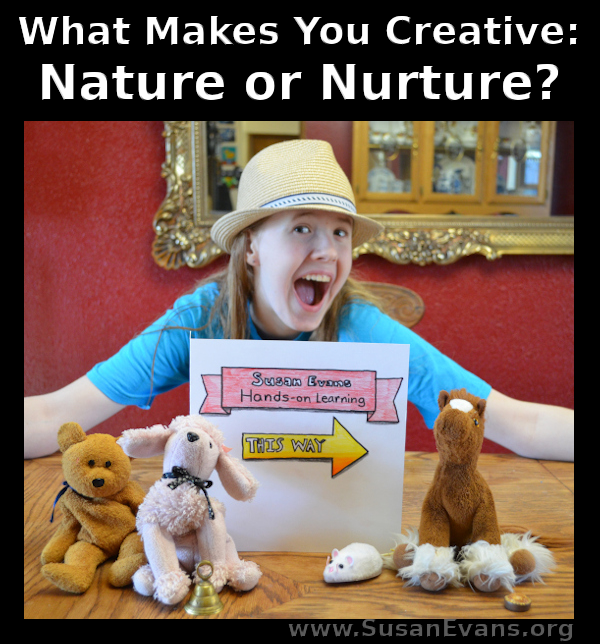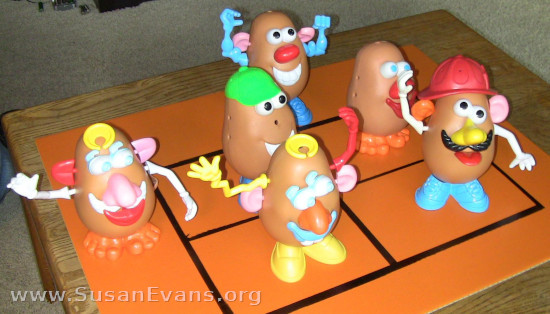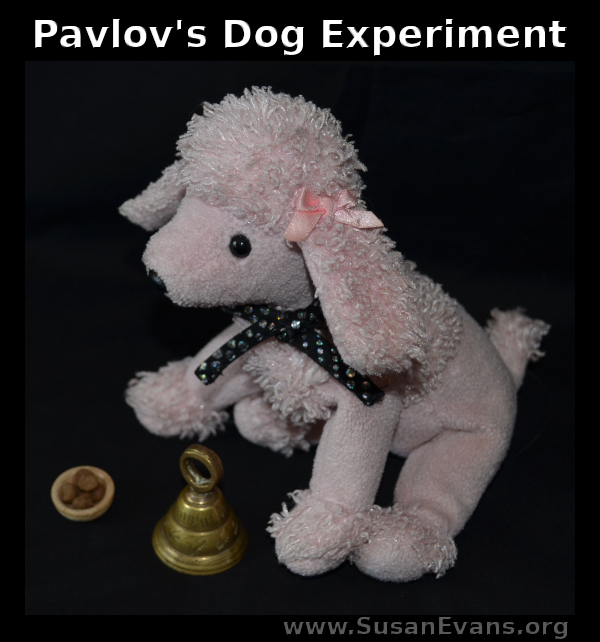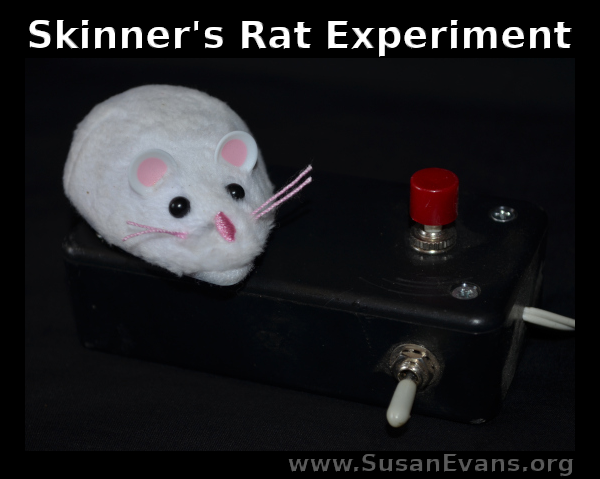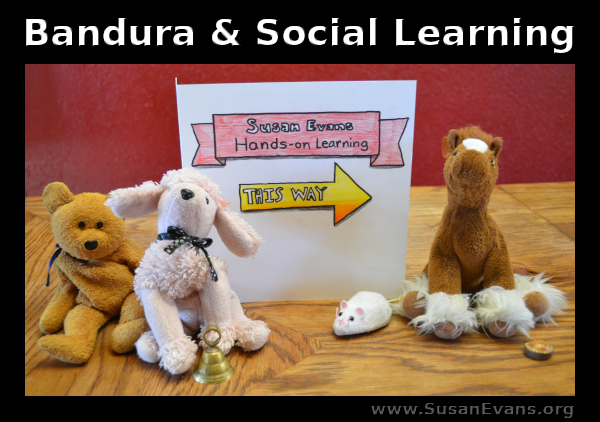What makes you creative: Nature or Nurture? Today we will find out if genetics is all-important, or if learning wins out in making people who they are. We are studying high school psychology, the third and fourth chapters of our curriculum from 7 Sisters. (See link at the bottom of this post.) The third chapter is about genetics. Back when we studied biology, we did a super fun activity that I made up with Mr. Potato Heads and a gigantic punnet square:
Mr. and Mrs. Potato Head had four children. If Mr. Potato Head has a mixture of Bb (dominant brown eyes and recessive blue eyes) in his genes, and he marries Mrs. Potato Head with bb (recessive blue eyes), they will have two children with blue eyes and two children with brown eyes. (That’s because the recessive blue-eyed gene in the man combines with the recessive blue-eyed gene in the woman to create recessive blue-eyed children.)
If Mr. Potato Head had only dominant BB genes (brown eyes from both his parents), all four children would have brown eyes, even if the mom has blue eyes, because blue can’t win over brown. It’s like a game of rock-paper-scissors, where one is dominant over another and wins every time those two are together (like paper being dominant over rock every time).
We inherit a lot of physical characteristics from our parents, including capacity for thinking, creativity, and personality traits. Have you noticed that kids act a lot like their parents? The question is: is it only biological, or did the kids learn to act a certain way because they were conditioned by their environment? As far as creativity is concerned, you have the capacity to be creative because of the brain structures of your parents, and the fact that your mom wasn’t on drugs while she was pregnant with you. Nature plays a role in your capacity to be creative.
Nature or Nurture
by Rachel Evans
Years ago there was a battle between the scientists of psychology: Nature or Nurture? This battle was fought with valor and wit, until finally, some guy said that both sides were right! But seriously, the whole argument was about whether a person’s physical attributes and in-born abilities determined how they would act (Nature), or if a person’s upbringing and events that happened to them as a youngster affected how they would act (Nurture).
Truly, I am glad they figured out that both are true. But as to where I stand, I believe Nurture has a bigger role in it. If some guy Henry loved math because when he was six his math teachers were awesome, that is most definitely Nurture. If Henry never had those teachers, he might have been born with the ability to do math easily; but without finding out how to have fun doing it, he would’ve never become a world famous calculus professor. In my book, Nurture wins.
Pavlov, Skinner, & Bandura (goofy stuffed animal skits)
In this video, we will give illustrations of Nurture, which is when a person or animal is able to learn from his or her environment. Stuffed animals seem appropriate actors for this third psychology episode, since experiments were performed on animals (and humans) to see whether a specific response could be taught:
Pavlov, Skinner and Bandura
by Rachel Evans
If you refer to them by their last name, surely they did something cool. And indeed they did. These guys were psychologists studying behavior, such as what is learned versus what you were born with.
Pavlov‘s experiment is known everywhere. He took a dog. Whenever he fed the dog, he’d ring a bell right before. Eventually, even before showing the food, by ringing the bell the dog would get excited and salivate for the food. It was a learned response, a conditioned one.
Skinner‘s experiments also had to do with animals. He plopped a mouse into a box. Running around, the mouse would eventually find a lever and knock into it, dispensing a pellet of nom-noms. After a few times, the mouse learned that hitting the lever gave him yummies, therefore, the mouse was conditioned, taught, to hit the lever.
Bandura studied social learning. That is, if a child watches another child get rewarded or punished for a behavior, the child learns what to do and what not to do. This is why it’s also called observational learning. I theorize this is the main cause for violence. A person doesn’t learn to control his anger because, over the course of his life, he was rewarded for bad behavior. Therefore, he uses fighting as the answer to every problem, making the world worse for everyone.
Overall, there’s a lot to learn about behavior and learning in psychology, and I’d love to see what they have to discover next.
Getting back to the original question about creativity, even though Nature plays a role in the capacity of your brain to come up with creative thoughts, how we are brought up greatly affects our ability to think outside the box and be creative. Opportunities throughout childhood to be creative contribute to expanding the mind and enabling an adult to possess greater creativity than another adult who never had the same childhood opportunities to be creative.
In case you are wondering what curriculum we are using for psychology, we are studying {affiliate link} Introduction to Psychology by 7 Sisters Homeschool. We are having a ball with this curriculum!
Coming up next… the goofiest history of psychology you’ve ever seen! (Sign up for our monthly newsletter below if you don’t want to miss a single episode.)
